#Publishers
Text
Dear Hair,
I cut you as punishment.
Force you to stare
As pieces of your body
Float to the ground
Where we are both bound
And you screech and screech
In agony
You dare ask me why
When you had spent
Most of your time
With your long tendrils
Coiled and knotted
Sometimes so tight
I found bits of you between my
My pearly whites
But you grow and grow
Even with a blade to your throat.
~M.M
247 notes
·
View notes
Text
Middlemen without enshittification
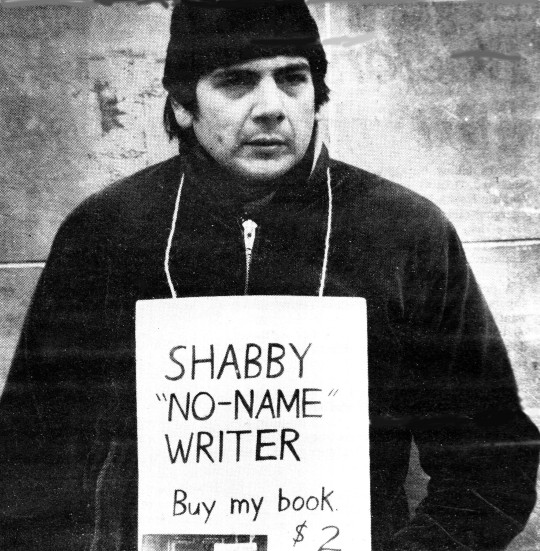
I'm on tour with my new novel The Bezzle! Catch me next in SALT LAKE CITY (Feb 21, Weller Book Works) and SAN DIEGO (Feb 22, Mysterious Galaxy). After that, it's LA, Seattle, Portland, Phoenix and more!

Enshittification describes how platforms go bad, which is also how the internet goes bad, because the internet is made of platforms, which is weird, because platforms are intermediaries and we were promised that the internet would disintermediate the world:
https://pluralistic.net/2024/01/30/go-nuts-meine-kerle/#ich-bin-ein-bratapfel
The internet did disintermediate a hell of a lot of intermediaries – that is, "middlemen" – but then it created a bunch more of these middlemen, who coalesced into a handful of gatekeepers, or as the EU calls them "VLOPs" (Very Large Online Platforms, the most EU acronym ever).
Which raises two questions: first, why did so many of us end up flocking to these intermediaries' sites, and how did those sites end up with so much power?
To answer the first question, I want you to consider one of my favorite authors: Crad Kilodney (RIP):
https://archive.org/details/thecradkilodneypapers
When I was growing up, Crad was a fixture on the streets of Toronto. All through the day and late into the evening, winter or summer, Crad would stand on the street with a sign around his neck ("Very famous Canadian author, buy my books, $2" or sometimes just "Margaret Atwood, buy my books, $2"). He wrote these deeply weird, often very funny short stories, which he edited, typeset, printed, bound and sold himself, one at a time, to people who approached him on the street.
I had a lot of conversations with Crad – as an aspiring writer, I was endlessly fascinated by him and his books. He was funny, acerbic – and sneaky. Crad wore a wire: he kept a hidden tape recorder rolling in his coat and he secretly recorded conversations with people like me, and then released a series of home-duplicated tapes of the weirdest and funniest ones:
https://archive.org/details/on-the-street-crad-kilodney-vol-1
I love Crad. He deserves more recognition. There's an on-again/off-again documentary about his life and work that I hope gets made some day:
https://pluralistic.net/2020/09/09/free-sample/#putrid-scum
But – and this is the crucial part – there are writers out there I want to hear from who couldn't do what Crad did. Maybe they can write books, but not edit them. Or edit them, but not typeset them. Or typeset, but not print. Or print, but not spend the rest of their lives standing on a street-corner with a "PUTRID SCUM" sign around their neck.
Which is fine. That's why we have intermediaries. I like booksellers (I was one!). I like publishers. I like distributors. I like their salesforce, who go forth and convince the booksellers of the world to stock books like mine. I have ten million things I want to do before I die, and I'm already 52, and being a sales-rep for a publisher isn't on my bucket list. I am so thankful that someone else wants to do this for me.
That's why we have intermediaries, and why disintermediation always leads to some degree of re-intermediation. There's a lot of explicit and implicit knowledge and specialized skill required to connect buyers and sellers, creators and audiences, and other sides of two-sided markets. Some producers can do some of this stuff for themselves, and a very few – like Crad – can do it all, but most of us need some help, somewhere along the way. In the excellent 2022 book Direct, Kathryn Judge lays out a clear case for all the good that middlemen can do:
https://pluralistic.net/2022/06/12/direct-the-problem-of-middlemen/
So why were we all so anxious for disintermediation back in the late 1990s? Here's a hint: it wasn't because we hated intermediaries – it was because we hated powerful intermediaries.
The point of an intermediary is to serve as a conduit between producers and consumers, buyers and sellers, audiences and creators. When an intermediary gains power over the audience – say, by locking them inside a walled garden – and then uses that lock-in to screw producers and appropriate an ever larger share of the value going between them, that's when intermediaries become a problem.
The problem isn't that someone will handle ticketing for your gig. The problem is that Ticketmaster has locked down all the ticketing, and the venues, and the promotions, and it uses that power to gouge fans and rip off artists:
https://pluralistic.net/2022/11/20/anything-that-cant-go-on-forever-will-eventually-stop/
The problem isn't that there's a well-made website that lets you shop for goods sold by many small merchants and producers. It's that Amazon has cornered this market, takes $0.51 out of every dollar you spend there, and clones and destroys any small merchant who succeeds on the platform:
https://pluralistic.net/2023/04/25/greedflation/#commissar-bezos
The problem isn't that there's a website where you can stream most of the music ever recorded. It's that Spotify colludes with the Big Three labels to rip off artists and sneaks crap you don't want to hear into your stream in order to collect payola:
https://pluralistic.net/2022/09/12/streaming-doesnt-pay/#stunt-publishing
The problem isn't that there's a website where you can buy any audiobook you want. It's that Amazon's Audible locks every book to its platform forever and steals hundreds of millions of dollars from creators:
https://pluralistic.net/2022/07/25/can-you-hear-me-now/#acx-ripoff
The problem, in other words, isn't intermediation – it's power. The thing that distinguishes a useful intermediary from an enshittified bully is power. Intermediaries gain power when our governments stop enforcing competition law. This lets intermediaries buy each other up and corner markets. Once they've formed cozy cartels, they can capture their regulators and commit rampant labor, privacy and consumer violations with impunity. That capture also lets them harness governments to punish smaller players that want to free workers, creators, audiences and customers from walled gardens. It also hands them a whip-hand over their workers, so that any worker who refuses to aid in these nefarious plans can be easily fired:
https://pluralistic.net/2024/01/30/go-nuts-meine-kerle/#ich-bin-ein-bratapfel
A world with intermediaries is a better world. As much as I love Crad Kilodney's books, I wouldn't want to live in a world where the only books on my shelves came from people prepared to stand on a street-corner wearing a "FOUL PUS FROM DEAD DOGS" sign.
The problem isn't intermediaries – it's powerful intermediaries. That's why the world's surging antitrust movement is so exciting: by reinstating competition law, we can keep intermediaries small and comparatively weak, so that creators and audiences, drivers and riders, sellers and buyers, and other groups seeking to connect will not find themselves made subservient to middlemen.

If you'd like an essay-formatted version of this post to read or share, here's a link to it on pluralistic.net, my surveillance-free, ad-free, tracker-free blog:
https://pluralistic.net/2024/02/19/crad-kilodney-was-an-outlier/#intermediation
#pluralistic#intermediation#disintermediation#publishing#creative labor#middlemen#distributors#publishers#publicists#enshittification#monopoly#monopsony#crad kilodney#trustbusting#antitrust
171 notes
·
View notes
Text
HELLO WRITERS AND POETS OF TUMBLR! DO YOU WANT TO GET PUBLISHED IN A LITERARY JOURNAL?
For years I've been submitting to literary journals and gotten fed up with the process, so I've decided to start my own! It's called Goosewax! There is NO submission fee and NO long waiting period! Already published your work to Tumblr, Wattpad, Substack, etc? Not a problem. I have no issues with accepting previously published work!
Obviously this journal is brand new, so I can't claim any kind of prestige, but it is an official literary journal and your work would be considered published! This means that in all your cover letters from now on, you could list publication in a journal. You'd also be helping an independent journal get its feet off the ground.
There are very few rules to submit, but be sure to read them on the Submissions page linked below. Basically I accept short stories, creative nonfiction, and poetry all with a maximum of 5k words (no fanfiction please, only works that don't require knowledge of particular media). Since I don't have a backlog to get through right now, turnaround time will be lightning fast and if you choose to provide an email (optional) you'll hear back about your submission in a day or two. Here's the submission page:
You can also email me at [email protected] with your submission attached, if you prefer. If you have trouble with either of these, feel free to DM me on Tumblr. You can also remain entirely anonymous if you'd like, or be published under a username. It's up to you! If you don't wish to submit, reblogs are GREATLY appreciated as I try to get this thing going. I am super excited about this project and I can't wait to read your submissions!
#writing#writers#publishing#journals#literature#poetry#poets#writers of tumblr#poets of tumblr#creative writing#writer help#writing tips#writing help#literary journals#literary magazine#publication#publishers#indie writers#books#poems
842 notes
·
View notes
Photo

#publishing#writing#books#songs#lyrics#literature#authors#rejection#the beatles#critic#music#wrong hands#john atkinson#webcomic#humor#publishers
214 notes
·
View notes
Photo

With so many imprints, it’s easy to get lost which book was released by which publishing house. These flowcharts explain the current structure of the Big Five.
(via Flowcharts explain the current structure of the Big Five publishers)
80 notes
·
View notes
Text
Anonymous asked: I appreciate that you are a very thoughtful and clever commentator on culture even when you have strong conservative views. So let me ask you where do you stand on the censorship of Roald Dahl’s books by his publishers?
Although he was never knighted nor awarded any significant distinctions by the government, turning down an OBE in 1986 as insufficiently impressive, Roald Dahl was by far the most popular children’s writer of his generation, and continues to be totemic for both readers and authors. Indeed I read all the Dahl books as a child and had fun doing so. It is debatable how much of a career David Walliams would have if his books didn’t overtly pay homage to Dahl’s, even down to hiring his regular illustrator Quentin Blake for some of them. And yet Dahl’s recent public reputation has been chequered enough throughout his own lifetime for the Royal Mint not to issue a coin commemorating his centenary, as they described him as not being “an author of the highest reputation” – an excellent piece of bureaucratic double-speak.

So I was surprised to see how viral the controversy regarding the rewriting of Roald Dahl’s books, to make them more commercial sensitive, had crescendoed in the media in the UK and abroad. In all honesty I find the whole thing rather tedious. It’s been discussed to death and my feelings are predictable - you can already guess that I’m against the changes, the people who read me already agree, and the people who disagree would never listen to me anyway. I’m against any censorship of Dahl’s books on the grounds of morality and also quality.
Sometimes they’re editing Dahl-as-such and sometimes his characters. The gluttonous Augustus Gloop in Charlie and the Chocolate Factory is no longer described as “fat” but rather as “enormous,” thus leaving readers free to imagine that he’s a powerlifter in a high weight classification. Dahl himself is the insensitive one there. When a character says of another character “I’d knock her flat,” Puffin’s so-called ‘super sensitivity readers’ (hired within the publisher’s staff to weed out things each would find ‘problematic’) replace that fierce language with “I’d give her a right talking to.” But what if the character speaking is the type to use strong language? Or do bad things? Shall we have a version of Crime and Punishment in which Raskolnikov skulks around St. Petersburg fantasising about giving his landlady a right talking to?
Sometimes it’s hard to tell what offence the super-sensitives imagine: It’s not clear that calling someone a “trickster” rather than a “saucy beast” makes an improvement in manners; what is clear is that the meaning is completely different. But: while Dahl referred to Mrs. Twit as “ugly and beastly,” she is now just called “beastly,” though I cannot imagine why calling someone a “beast” is unacceptable but calling them “beastly” is hunky-dory.

One could go on about this silliness all day, and many are doing so, but I actually think there’s an important point to be made in response to these changes: the people doing it have no right to do so. They have the legal right, but what they’re doing is morally wrong.
It’s morally wrong first of all because it’s dishonest. The books will still be sold as Roald Dahl’s - it is his name that will draw readers to these volumes - but they are in fact Dahl’s involuntary collaboration with people who find some of his words and phrases intolerable. That this is so should be announced on the book’s covers – but you may be sure that it will not be. If you own the rights to Dahl’s books but passionately believe that what Dahl wrote is too offensive for today’s readers to face, then your only honourable option is to stop selling the damn books.
This may sound like an odd digression, but bear with me: I’ve been reading a bit of John Ruskin and in his The Seven Lamps of Architecture, Ruskin confronts the widespread practice, in the England of his time, of either dramatically renovating or tearing down old buildings.
First, Ruskin says, when a building is stripped down to its shell and given an entirely new interior, those who do it should call it what it is: destruction. “But, it is said, there may come a necessity for restoration! Granted. Look the necessity full in the face, and understand it on its own terms. It is a necessity for destruction. Accept it as such, pull the building down, throw its stones into neglected corners, make ballast of them, or mortar, if you will; but do it honestly, and do not set up a Lie in their place.”
So also I say: Do not set up a Lie in place of Roald Dahl’s actual books. If they are intolerable, do not tolerate them. Let them go out of print, take the digital editions off the market, and force those of us who are bad enough to desire the books to scour second-hand bookstores for them.
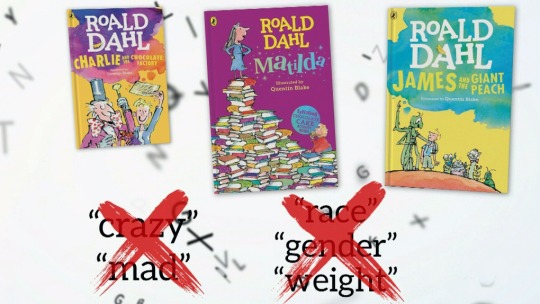
But let’s pursue Ruskin’s argument a bit further. Sometimes a building is torn down altogether, razed to the very ground. What does Ruskin say about that?
“Of more wanton or ignorant ravage it is vain to speak; my words will not reach those who commit them, and yet, be it heard or not, I must not leave the truth unstated, that it is again no question of expediency or feeling whether we shall preserve the buildings of past times or not. We have no right whatever to touch them. They are not ours. They belong partly to those who built them, and partly to all the generations of mankind who are to follow us. The dead have still their right in them: that which they laboured for, the praise of achievement or the expression of religious feeling, or whatsoever else it might be which in those buildings they intended to be permanent, we have no right to obliterate. What we have ourselves built, we are at liberty to throw down; but what other men gave their strength and wealth and life to accomplish, their right over does not pass away with their death; still less is the right to the use of what they have left vested in us only. It belongs to all their successors. It may hereafter be a subject of sorrow, or a cause of injury, to millions, that we have consulted our present convenience by casting down such buildings as we choose to dispense with. That sorrow, that loss, we have no right to inflict.”
As astonishingly eloquent and impassioned declaration, which, in regard to architecture, one might plausibly disagree with. Buildings take up a good deal of space, and the maintenance of them can be expensive; there certainly are circumstances in which demolition is indeed necessary. Ruskin, remember, grants this point, though not without a bit of hedging and tweaking.
But Ruskin’s argument is irrefutable when it comes to the other arts of the past – poetry, story, music, painting, sculpture. There can be no justification for mutilating or destroying them to suit “our present convenience.” We do not know whether later generations will think as we do, will share our preferences and our sensitivities; to preserve the art of the past is to show respect not only for that past but also for our possible futures. And it is to establish a standard for how we wish to be treated by our descendants.
Even the Victorians (and some of their successors) who thought sculptures of naked men too offensive for ladies to see merely covered the pudenda with plaster leaves - the penises themselves remained untouched, for later generations, and less delicate viewers, to see if they wish.
The second domain argument I have against censoring Dahl’s book is the patent drop in linguistic quality. In other words, they patently degrade the quality of the text. Witness how Dahl’s mild comic surrealism gives way to a joyless lecture:

No one would deny that Dahl was a rather scabrous and even sadistic writer. But part of the fun of reading him, as a child, is grappling with the darkness - beginning to comprehend the shadows one has glimpsed around the world. These small-souled artistic vandals are flattening out those interesting quirks in the grip of a paralysing fear that someone, somewhere might read it and then take or give offence.
If Roald Dahl cannot even say that Mrs Trunchbull has a horsey face - because nobody has unsightly features or because we are forbidden from noticing them - what else could be changed? If books like Matilda and films like Gone With the Wind are being sliced and diced, what could happen to less famous and more genuinely provocative books, films, opera, even songs? Indeed, look at how Dahl’s publishers have decided that authors as illustrious as Joseph Conrad and Rudyard Kipling - referenced in Matilda but now replaced with Jane Austen and John Steinbeck - are too dangerous to even mention in front of kids. Do these literary scolds actually think there is no literary value in reading Heart of Darkness or Kim? Jesus wept.

The final clinching argument I’ve heard from critics who want to censor Dahl and his books is because he was an alleged anti-semite. And if he was, so what? If that’s the standard then we should be binning every author, artist, composer, musician for any kind of transgression or character flaw against some absolute moral standard.
As the great pianist and conductor, Daniel Barenboim, once said of Wagner, that it was reductive to say that Wagner was a terrible man with reactionary ideas in general, and therefore his music, no matter how wonderful, is intolerable because it is infected with the same poison as his prose. How would that be demonstrated? How many writers, musicians, poets, painters would be left if their art was judged by their moral behaviour? And who is to decide what level of ugliness and turpitude can be borne in the artistic production of any given artist?
Once one starts to censor, there is no theoretical limit. Rather, I would think that it is incumbent on the mind to be able to analyse a complex phenomenon such as the question of such creative artists whether they be a Wagner, a Celine, or a Dahl; or indeed, to give another example, Joseph Conrad as analysed in a famous essay written by the brilliant Nigerian novelist Chinua Achebe, reading Conrad's Heart of Darkness for an African today. With all these artists the challenge is the same: to show where the evil is and where the art is.
The truth is for a mature mind it should be possible to hold together in one's mind two contradictory facts, that Dahl was a great writer, and second, that Dahl was mean spirited shitty human being. Unfortunately, one cannot have one fact without the other.

Does that mean, therefore, that Dahl should not be read as he wrote his books? Most assuredly not, although it is obvious that if an individual is still troubled then there is no need at all to inflict Dahl on oneself - but you can’t make that choice for others.
An open attitude towards art is always necessary. This is not to say that artists shouldn't be morally judged for their immorality or evil practices; it is to say that an artist's work cannot be judged solely on those grounds and banned or censored accordingly.
Now I’ve heard from Dahl’s supporters that there are excuses that can be made. Dahl’s publisher Tom Maschler, who died in 2020, was a notoriously difficult and egocentric man, as well as being Jewish, and it could be argued, somewhat tendentiously, that many of Dahl’s attacks on Jews could be interpreted as necessarily veiled expressions of his venting his frustration with Maschler. Hmmm, yes, well.
More persuasive is Dahl’s friend Isaiah Berlin’s comment that, “I thought he might say anything. Could have been pro-Arab or pro-Jew. There was no consistent line. He was a man who followed whims, which meant he would blow up in one direction, so to speak”.

Dahl was a peculiar man whose richness of imagination went along with deep personal eccentricity. This was both tolerated and facilitated by those around him. Although JK Rowling raised eyebrows with her first post-Harry Potter novel, The Casual Vacancy, containing swearing and sex scenes, it seems extremely unlikely that she would have interrupted her career as one of Britain’s most successful ever writers to produce an erotic novel aimed at adults, as Dahl did with his (excellent and deeply un-PC) 1979 book My Uncle Oswald.
Likewise, the macabre violence visited upon children in books such as The Witches and Charlie and the Chocolate Factory suggests an ambivalence towards his readership that may have been borne out by one of the more eyebrow-raising anecdotes in Kingsley Amis’s Memoirs. Upon meeting Dahl at a party and being asked if he has any ideas for children’s books (“that’s where the money is today, believe me”), Amis regretfully replied that he did not, saying “I don’t think I enjoyed children’s books much when I was a child myself. I’ve got no feeling for that kind of thing.” To his surprise, Dahl replied “Never mind, the little bastards’d swallow it.”
Yet, just as Berlin suggested that the writer would switch from one persona to another on a whim, Dahl later collared Amis again at the party, and, apparently sincerely, informed him:
“If you do decide to have a crack, let me give you one warning. Unless you put everything you’ve got into it, unless you write it from the heart, the kids’ll have no use for it. They’ll see you’re having them on. And just let me tell you from experience that there’s nothing kids hate more than that. They won’t give you a second chance either. You’ll have had it for good as far as they’re concerned. Just you bear that in mind as a word of friendly advice.”
Amis records Dahl walking off “with a stiff nod and an air of having asserted his integrity by rejecting some particularly outrageous and repulsive suggestion”. What he hints at, but does not explicitly state, is that Dahl was perfectly sincere in both statements, switching with no apparent contradiction in his own mind between the personae of cynical exploiter of the young and heartfelt creator of magical stories.
This ability to snap between attitudes and personae might be described as sociopathic, and indeed much of Dahl’s life and career does hint at an unbalanced and inconsistent mind, both when it comes to attitudes that most people would find repellent and in the richness and immersive nature of the characters and worlds he created.

Like his great hero Lewis Carroll, another visionary eccentric, the wonder of Dahl’s writing is that he believed wholeheartedly in a fantastical universe, and the books represent that universe committed to paper. They are less a creative feat, and more a marvel of reportage, from the most vivid of imaginations.
None of which excuses his anti-Semitism. It is nonetheless the case that we should regard Dahl’s often provocative and thoughtless public statements in context with his imaginative genius. Rather than castigate him as yet another privately educated racist, we should instead treat him, like so many of his characters and peers, as a naïve and unworldly man who never entirely left the realm of make-believe.
We should neither censor Roald Dahl, nor celebrate him unreservedly, but instead treat his life and work with the careful consideration that it deserves, never forgetting the joy that it has given many millions over the decades.
The immediate and most important point: buy your kid a different book. Just buy your kid a different book! There are tens of thousands of children’s books out there that are inoffensive by anyone’s definition. Just buy those books. Exercise your choice. Not everything is made for you. I get that people feel that they are nothing but their consumption, that they have no identity but that which they buy. But not everything is for you. Buy something else. Buy something else!
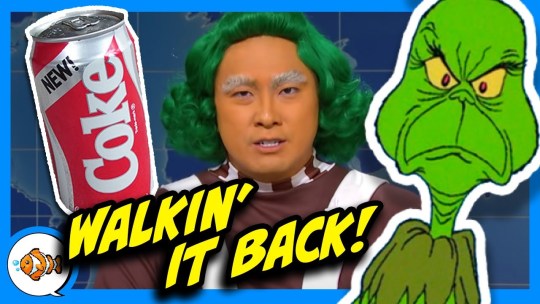
But the cynic in me thinks this is all playing quite nicely into Puffin’s hands. It’s one great way for Dahl’s publishers (and Netflix) to make a killing because they have in effect sanctioned two versions of Dahl’s books now: the censored line of books and the original unedited books under the ‘classic collection’ label. It’s like New Coke and Coke Classic, clearly differentiated by label.
In this new woke world it wouldn’t surprise me if they did advertise the one and not heavily advertise the other; they could make their preferences clear; they could say “If you are a Good Person you will purchase our sanitised versions rather than the nastiness written by Roald Dahl himself.” And then people could buy the version they want.
I know which version children and adult readers would want. The so-called in’-house ‘Super Sensitivity Readers’ would choose the sanitised version because they believe in the one canonical rule of their world view: the reader is always wrong. Because any genuine reader is, by definition, not a super sensitive.
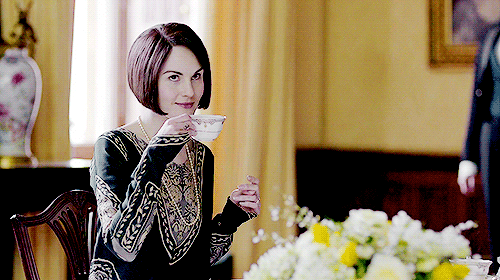
Thanks for your question.
#ask#question#roald dahl#book#reading#censorship#books#publishers#arts#culture#john ruskin#kingsley amis#isiah berlin#anti woke#woke#literature
66 notes
·
View notes
Text
Hello writers and poets of Tumblr! Do you want to get published in a journal?
I started Goosewax Online Journal with the goal of providing publishing opportunities to under-recognized writers. There are NO fees for submission, and previously published work is totally okay! The journal is a blog format (with the option of signing up to receive new posts as emails) and currently updates every Tuesday and Friday at 12pm PST. Submissions are through the google form at the bottom of the submissions page, linked below. And there's no crazy months long turnaround time either! If you choose to provide an email address, I'll get back to you within a week or so. Be sure to read the rules before submitting. Here's where to submit:
Submissions are currently for September publication on the journal site. If you're not interested in submitting, reblogs are greatly appreciated as I try to get this thing going. Thank you and happy writing!
#writing#writers of tumblr#publishing#journals#zines#poets#poetry#poems of tumblr#goosewax#writing help#writing tips#writer help#writing advice#publishers
151 notes
·
View notes
Text
Come think of it, how come anti-book piracy blame people who pirate books for their authors low wages, and not the major publishers who take advantage of authors?
12 notes
·
View notes
Text

Newsfeed #136 August 23, 2023 (23 Urimë)
You are probably wondering where I went. Well, someone like this series. And so at the moment, they are looking to publish the entire Kingdom of the Woodland Realm Trilogy. Yes, so, if everything goes according to plan, you will be able to buy the books.
At the moment I do not have to change a thing, but if I get the green light the way it is planned, this page will only exist, and all the other ones: @tkwrtrilogy, @tkwrtrilogy2, @tkwrtrilogy3, @extendedtkwrtrilogyend, @trenarnolegolaslasgalen, @tkwrtrilogylasttale, @oflordsandkingstkwrtbook @tkwrtlegends @tkwrtsongofsevenrivers will be abandoned as I will have to work with the publisher to bring the books to a worldwide audience.

Now, they did mention a series, but I'm not going to put the cart before the horse. I'm a realist first, and a truly diabolical human second. But this HUGE NEWS, yes. Thranduil began here in 2015 as the last of many Middle-Earth stories of the Elvenking, and he slowly rose to heights I could have never imagined. I hope I will be allowed to continue working here (should everything go as planned), and allow me to continue to entertain you as a published author. This will be another era for me and the Middle Earth of J.R.R. Tolkien. Thank You.--JMM (@jmmauthoroftkwrtrilogy @iamjaynaemarie)
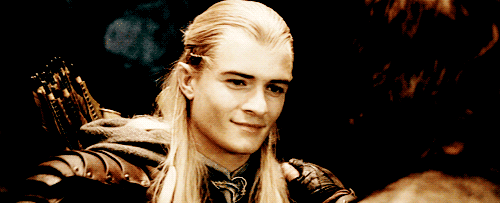
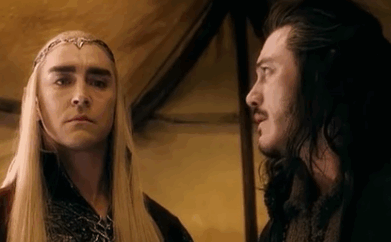
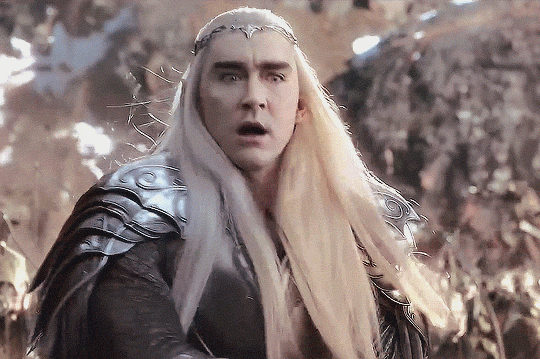
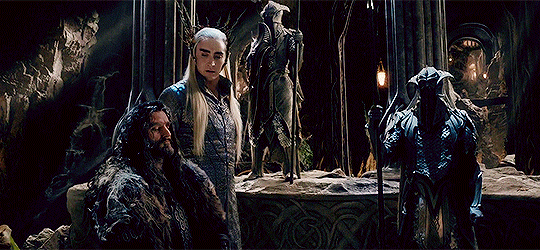
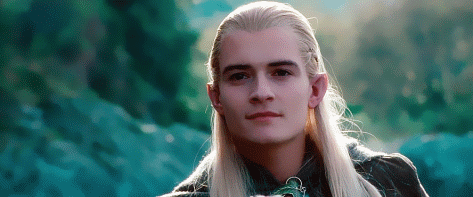
The Saga will ALWAYS continue.
#tkwrtnewsfeed#the official tkwr trilogy#based on tolkien#in honor of tolkien#writers on tumblr#writers on instagram#writers on wordpress#books#welcome back to middle earth#the last tale of legolas lasgalen#the saga of thranduil in print#the saga continues#publishing#publishers#from the author of tkwr
11 notes
·
View notes
Text
Good news for the new year! A lovely upbeat long read that will bring cheer to you readers.
#books#book stores#Barnes & Noble#publishers#selling books#readers#reading#love of books#good news#happy new year
50 notes
·
View notes
Text
Wish Upon a Star with Me
What is your dream?
How come no one ever asks me
When I look up
All I see are cemeteries
For all the stars we wish upon
are long gone
Dead
you see.
-M.M
#spilled poetry#poetry#poems and poetry#books#publishers#spilled ink#spilled thoughts#spilled words#spilled writing#letters#dead sta#wishes#wish upon a star
46 notes
·
View notes
Text
My first time back to a Writers Conference as a FT professional writer after 20+ years as a minimum-wage, hanging-by-my-fingernails-to-survive, utilities-cut-off-so-I-can-pay-the-rent, eating-ramen retail worker.
sound on
#writer#writers life#writing life#writers on tumblr#writing community#poverty#retail#retail hell#author#authors life#writing conferences#writers#writer conferences#publishers#editors#benedict cumberbatch#patrick melrose
4 notes
·
View notes
Text
What the sale of a major American book publisher means for authors, the industry — and you
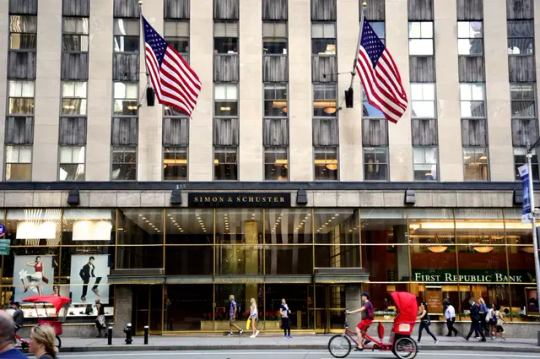
by Dan Sinykin
It seemed to many in book publishing like good news last October when the Department of Justice successfully sued to block Penguin Random House (PRH) from acquiring Simon & Schuster. PRH is the largest publisher in the United States and S & S is third. Together they might have controlled more than half the industry. Only three other publishers — HarperCollins, Hachette and Macmillan — control the bulk of the rest. Such consolidation has long worried literary types who fear it leads to the privileging of profit over culture. But the alternative in this case might prove worse. On Monday, Paramount sold Simon & Schuster to KKR, a private equity firm.
Simon & Schuster’s role in the book world
Simon & Schuster is a 99-year-old house. Founded by two Jewish bookmen, Richard Simon and Max Schuster, it was among a wave of new firms established in the first half of the 20th century by Jewish bookmen, including Knopf, Random House and Viking. But whereas these other houses were literary ventures, S & S was more commercial from the start. While Random House profited from the scandal of James Joyce’s “Ulysses,” S & S grew on the back of crossword puzzle books.
READ MORE
9 notes
·
View notes
Text
Historic Publisher, Third World Press Foundation, Raises $100,000 After Flood Destroys Inventory


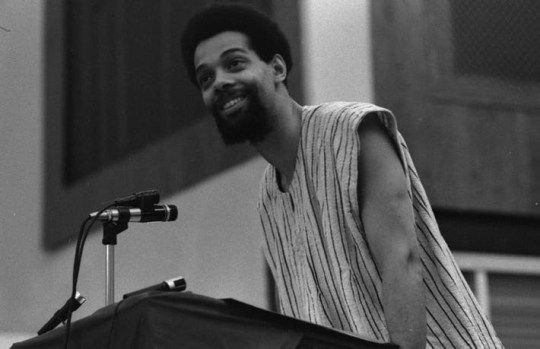
3 notes
·
View notes
Text

Daughter of Mine
by Megan Miranda
published by S&S/Marysue Rucci Books
Available in hardcover, ebook, and unabridged audio download
From the Simon & Schuster website:
When Hazel Sharp, daughter of Mirror Lake’s longtime local detective, unexpectedly inherits her childhood home, she’s warily drawn back to the town—and people—she left behind almost a decade earlier. But Hazel’s not the only relic of the past to return: a drought has descended on the region, and as the water level in the lake drops, long-hidden secrets begin to emerge…including evidence that may help finally explain the mystery of her mother’s disappearance.
* * * * * * * *
2 notes
·
View notes
